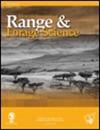一个世纪以来基于证据的草地生态系统火灾管理经验
IF 1.9
4区 环境科学与生态学
Q3 ECOLOGY
引用次数: 0
摘要
自史前以来,火作为一种生态系统过程一直具有影响力,并被世界各地的人们用作支持生计和维护景观的工具。在草地生态系统中尤其如此,那里的景观和生态系统适应火灾并依赖火灾,即使在今天,人们仍然依靠火灾来管理资源(例如牧区和重要的粮食植物)。目前,全球对火灾及其利用的态度受到森林火灾影响的影响,导致对火灾对草原的影响和作用的负面看法有缺陷。我们管理火灾的环境在气候、政治、社会和经济方面也在发生变化,范围从地方到区域再到全球,有可能改变支持生物多样性、生态系统服务和人们生计的基本火灾制度。理解和管理火灾以支持社会和生态动态是一项艰巨的挑战。在非洲南部,对火的第一次正式科学研究始于20世纪初。尽管在传统的土地管理者中,学习是一种普遍的做法,但在欧洲殖民者和科学家中,对草地生态系统中火灾的普遍看法是消极的。这个时代的生态学家(如John William bews和John fV Philips)质疑普遍存在的消极态度,呼吁对火灾的影响和行为进行更多的实证和实验调查。这些努力帮助培养了一代又一代的火灾生态学家,促进了科学家、管理者和当地社区之间的互动,并提出了关于科学方法是补充还是破坏了土著知识和实践的重要问题。在第一份关于南部非洲火灾影响的科学研究发表100年后,现在是时候庆祝并批判性地评估我们目前的理解和进展了。来自火灾实验的信息为基于证据的火灾管理提供了坚实的基础,越来越强调将土著和传统的火灾管理实践结合起来,这些实践已被证明可以减少火灾风险和碳排放,提高火灾安全,同时还促进依赖火灾的生态系统过程和服务。在本期特刊中,我们包括了不同的观点,这些观点研究了来自生态和社会学科的证据,这些证据与世界各地的草地生态系统的火灾管理有关。一个多世纪的火灾实验和应用火灾管理和灭火,加上火灾探测、测绘和监测方面的现代技术进步,为循证火灾管理提供了坚实的基础。本文章由计算机程序翻译,如有差异,请以英文原文为准。
Lessons from a century of evidence-based fire management in grassy ecosystems
Since prehistory, fire has been influential as an ecosystem process and has been used by people as a tool to support livelihoods and maintain landscapes worldwide. This is especially true in grassy ecosystems, where landscapes and ecological systems are fire-adapted and fire-dependent and where, even today, people are reliant on fire to manage resources (e.g. grazing areas and important food plants). Currently, global attitudes towards fire and the use thereof are shaped by the impacts of fire in forests, resulting in flawed negative perspectives of the impacts and role of fire in grasslands. The environment in which we manage fire is also changing, climatically, politically, socially, and economically, at scales ranging from local to regional to global, with the potential to alter essential fire regimes that support biodiversity, ecosystem services, and people’s livelihoods. Understanding and managing fire to support both the social and ecological dynamics presents a formidable challenge. In Southern africa, the first formal scientific investigations of fire started in the early 1900s. although learning was common practice among traditional land managers, prevailing perceptions of fire in grassy ecosystems among European colonists and scientists were negative. Ecologists from this era (e.g. John William bews and John fV Philips) questioned prevailing negative attitudes, calling for more empirical and experimental investigations into fire impacts and behaviour. These efforts helped grow generations of fire ecologists, foster interactions among scientists, managers, and local communities, and raised important questions about whether the scientific approach complements or undermines indigenous knowledge and practices. One hundred years after the first scientific studies on fire impacts in southern africa were published, it is time to both celebrate and critically assess our current understanding and progress. Information from fire experiments offer a strong foundation for evidence-based fire management, with increasing emphasis on incorporating indigenous and traditional fire management practices that have been shown to reduce fire risk and carbon emissions and increase fire safety, while also promoting fire-dependent ecosystem processes and services. In this Special Issue, we include diverse perspectives that examine the evidence from ecological and social disciplines on fire management in grassy ecosystems across the world. More than a century of fire experiments and applied fire management and suppression, together with modern technological advances in fire detection, mappings and monitoring, offer a strong foundation for evidence-based fire management.
求助全文
通过发布文献求助,成功后即可免费获取论文全文。
去求助
来源期刊

African Journal of Range & Forage Science
ECOLOGY-ENVIRONMENTAL SCIENCES
CiteScore
4.00
自引率
14.30%
发文量
35
审稿时长
>12 weeks
期刊介绍:
The African Journal of Range & Forage Science is the leading rangeland and pastoral journal in Africa. The Journal is dedicated to publishing quality original material that advances rangeland ecology and pasture management. The journal aims to publish research of international importance from any region, but as an African journal, we are particularly interested in research from Africa and relevant to the continent. The Journal promotes both science and its application and authors are encouraged to explicitly identify the practical implications of their work. Peer-reviewed research papers and research notes deal primarily with all aspects of rangeland and pasture ecology and management, including the ecophysiology and biogeochemistry of rangelands and pastures, terrestrial plant–herbivore interactions (both domestic and wild), rangeland assessment and monitoring, effects of climate change on rangelands, rangeland and pasture management, rangeland rehabilitation, ecosystem services in support of production, conservation and biodiversity goals, and the identification and development of intensive and semi-intensive pasture and forage resources to meet livestock production needs. Articles highlighting transdisciplinary linkages among biophysical and social sciences that support management, policy and societal values are particularly encouraged. The Journal includes relevant book reviews and invited perspectives that contribute to the development of range and forage science. Letters to the editor that debate issues raised in the Journal are acceptable. The African Journal of Range & Forage Science is the official journal of the Grassland Society of Southern Africa.
 求助内容:
求助内容: 应助结果提醒方式:
应助结果提醒方式:


